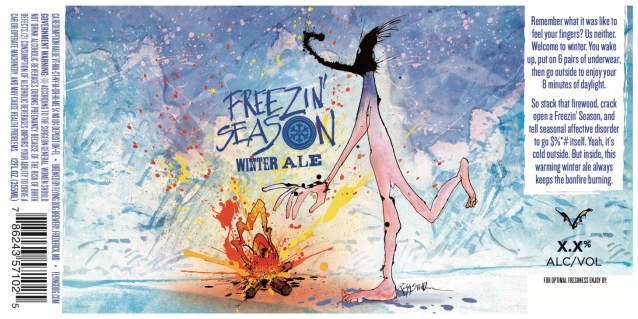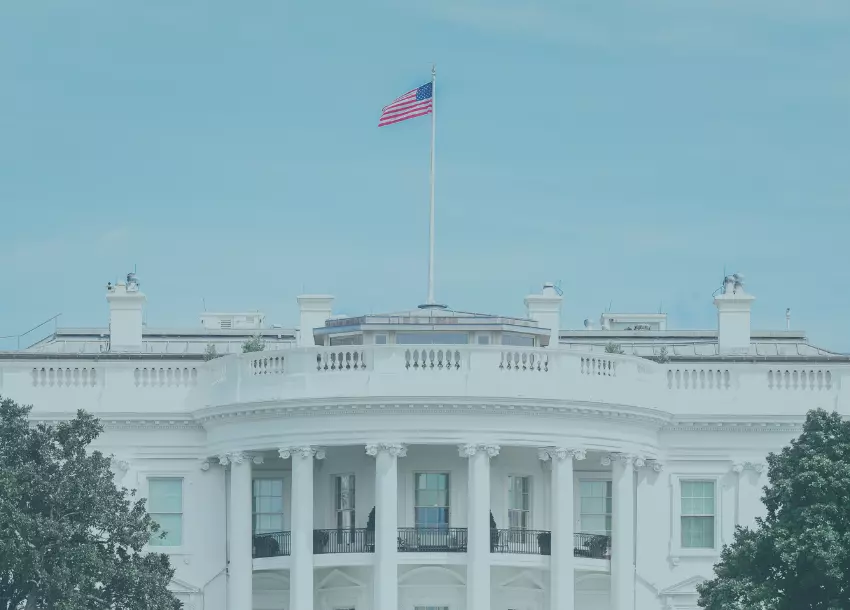The “Beer” Necessities of Alcohol Labeling in North Carolina
All advertising of alcoholic beverages in North Carolina must comply with the Alcoholic Beverage Control (“ABC”) Commission’s rules and the Commission has the authority to regulate alcohol advertisements that are “contrary to the public interest.” § 18B-105(a)-(b). One rule that has recently been under attack states that alcohol advertisements shall not contain any design that “depicts the use of alcoholic beverages in a scene that is…undignified, immodest, or in bad taste.” 14B N.C. Admin. Code 15B.1003(a)(2). The recent case of Flying Dog Brewery, LLC v. N.C. Alcoholic Beverage Control Commission concludes that the law sweeps far too broadly to achieve North Carolina’s “substantial interest” in the public, making it facially unconstitutional.
“Freezin’ Season” Gets Struck Down by the Commission
In June 2021, Flying Dog Brewery sent samples of the label for its “Freezin’ Season Winter Ale” beer to the ABC Commission for its approval. The label contained “a nude cartoon figure standing next to a campfire.” The Commission rejected the label, citing 14B N.C. Admin. Code 15B.1003, and stated that the label was in “bad taste” and contained an inappropriate image.

In response, Flying Dog filed a complaint that alleged that the rule violated the First Amendment of the Constitution because it “is invalid on its face as an unconstitutional prior restraint on protected expression, is invalid on its face as inherently vague and ambiguous, and is invalid as applied to bar the advertisement and sale of Freezin’ Season Winter Ale where defendants lack any valid interest which would justify censorship of…[the] label.”
The Commission countered that North Carolina has a substantial interest in “protecting children from exposure to vulgar language and speech that is sexually profane.” They further contended that the rule protects children from being “ambushed” by vulgar and explicit alcoholic beverage labels while shopping with their parents.
The Court Says “Too Broad”—the Rule Is Not Protected by the First Amendment
The Court first had to analyze whether the beer label constitutes commercial speech. There are three factors to consider: (1) whether the speech is an advertisement; (2) whether the speech refers to a specific product or service; and (3) whether the speaker has an economic motivation for the speech. In Bad Frog Brewery, Inc. v. N.Y. State Liquor Auth., the Court held that a beer label was commercial speech because “the label is ultimately designed to advertise and sell plaintiff’s beer.” Here, this Court similarly decided that the beer label was commercial speech. Each of the factors were satisfied; the label is an advertisement, the label refers to the specific product—the beer, and it is economically motivated because its purpose is to sell the beer.
Next, the Court had to evaluate whether the commercial speech was protected by the First Amendment citing that commercial speech is protected from “unwarranted governmental regulation.” To determine whether regulations are unwarranted, courts have to assess whether there is a substantial government interest that is “directly advanced by the challenged regulation” and whether “the regulation is more extensive than is necessary to serve the state’s interest.” The Flying Dog Court found that there is a substantial governmental interest in “preventing parents and children from being surprised by sexually explicit…beer labels,” however, the regulation allowing the Commission to deny a product label that “depicts the use of alcoholic beverages in a scene that is determined by the Commission to be undignified, immodest, or in bad taste” is simply too broad. As such, the regulation was “unwarranted” and not narrowly tailored, so the commercial speech was protected.
Moving Forward
In conclusion, as written artfully by Judge Boyle, “while the ABC Commission may regulate alcoholic beverage labeling beyond the limits of the definition of obscenity,” it must do so in a manner that is narrowly tailored to achieve a substantial government interest. Moving forward, it will be interesting to see how the Commission handles its label review and whether it amends the rule so that it is “narrowly tailored” or whether it amends its review process to consider impairment of manufacturers’ commercial speech.
The Nexsen Pruet Alcohol Permitting and Licensing team is experienced in navigating the rules of the ABC Commission. Contact us to discuss your next project.
Co-authored by Morgan Hoyt, law clerk
About Maynard Nexsen
Maynard Nexsen is a full-service law firm of 600+ attorneys in 31 locations from coast to coast across the United States. Maynard Nexsen formed in 2023 when two successful, client-centered firms combined to form a powerful national team. Maynard Nexsen’s list of clients spans a wide range of industry sectors and includes both public and private companies.








